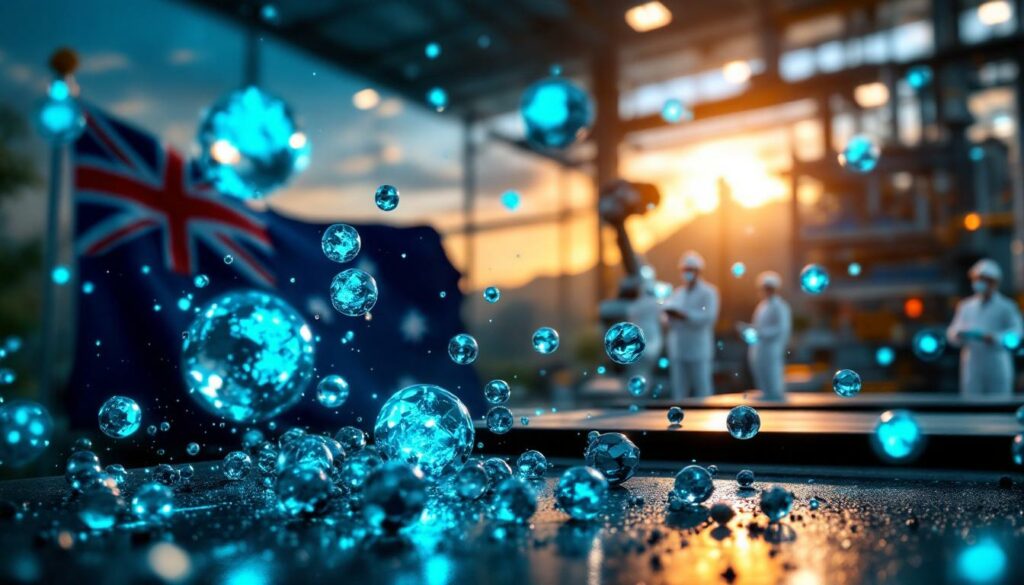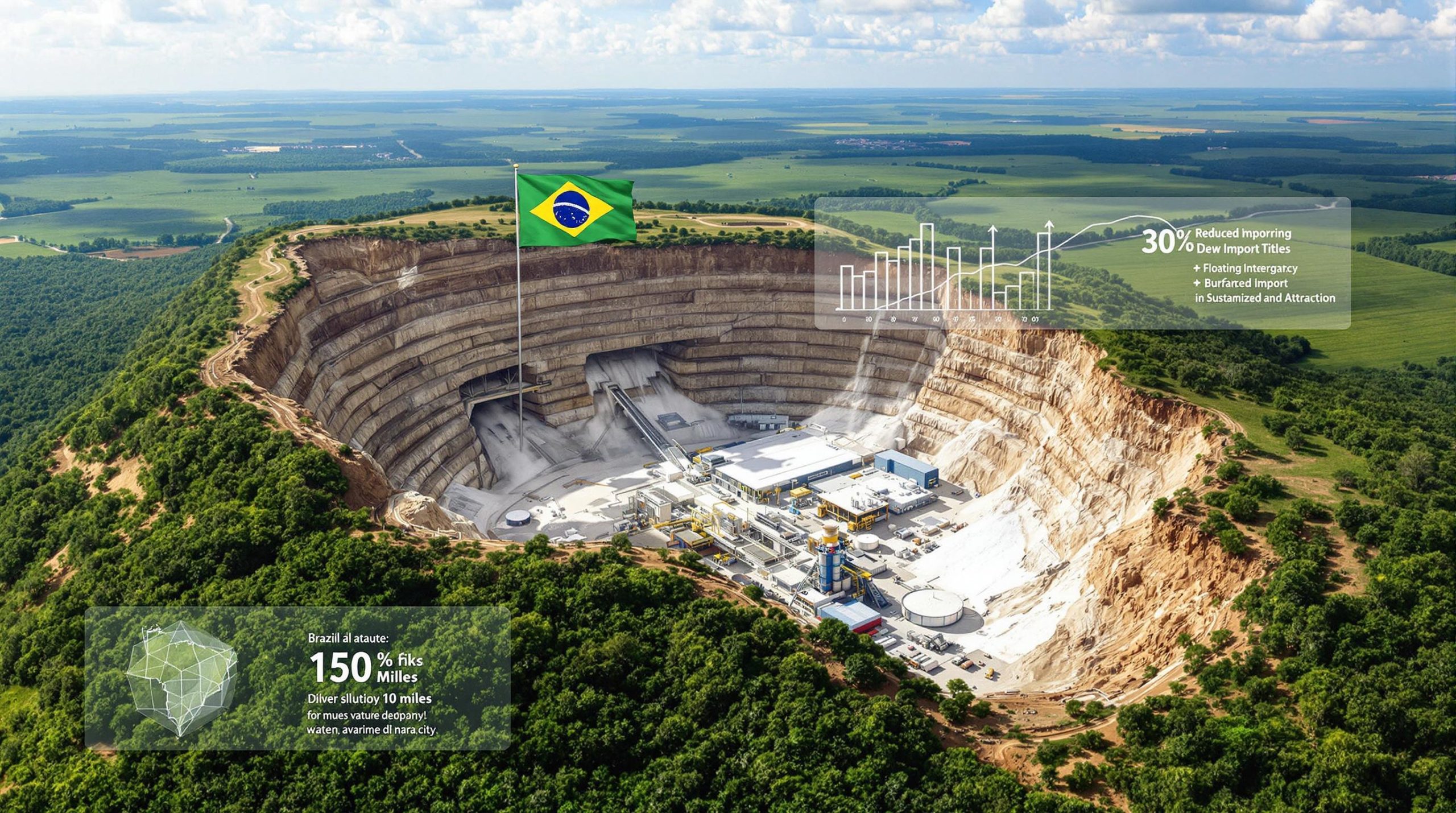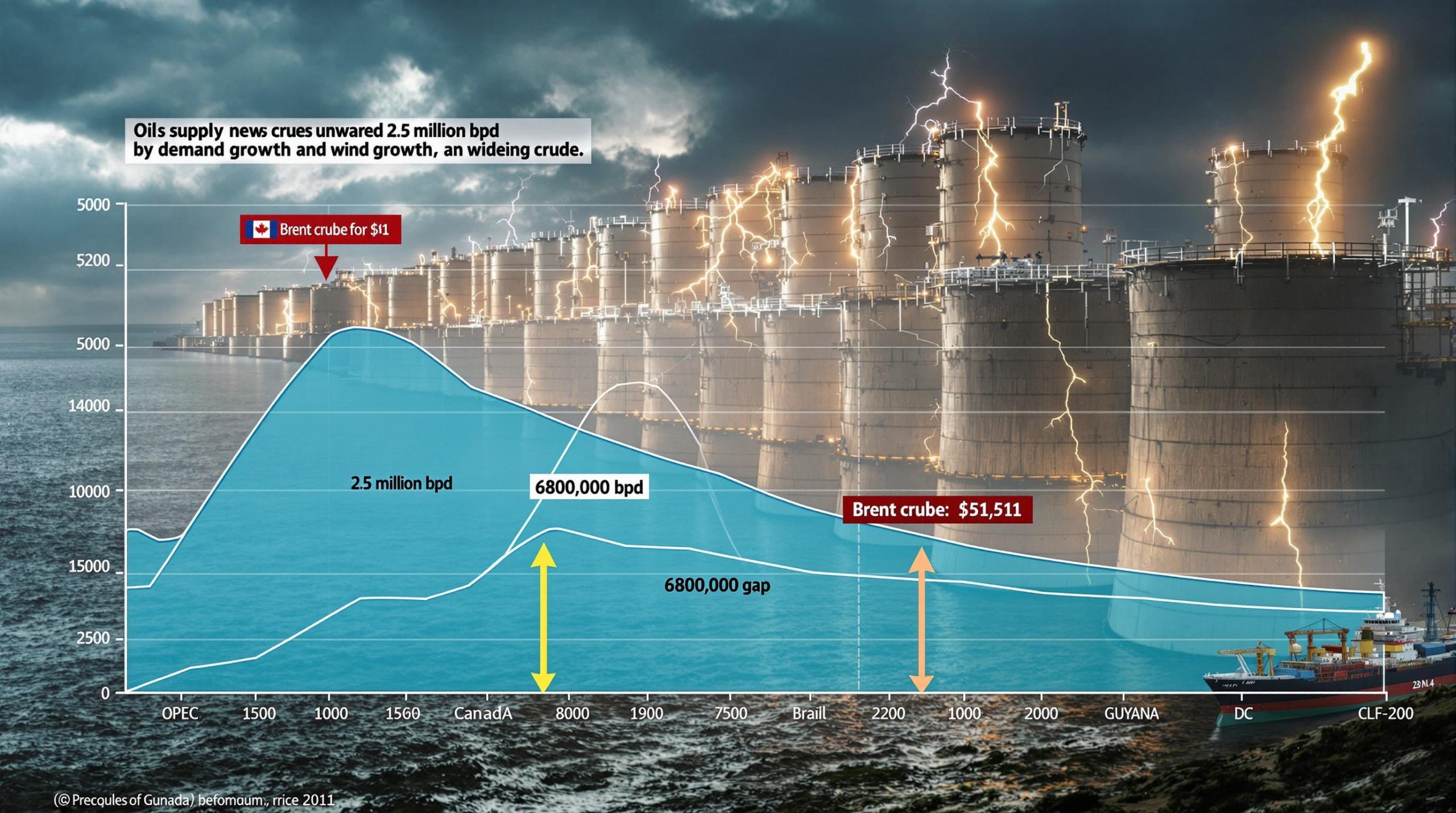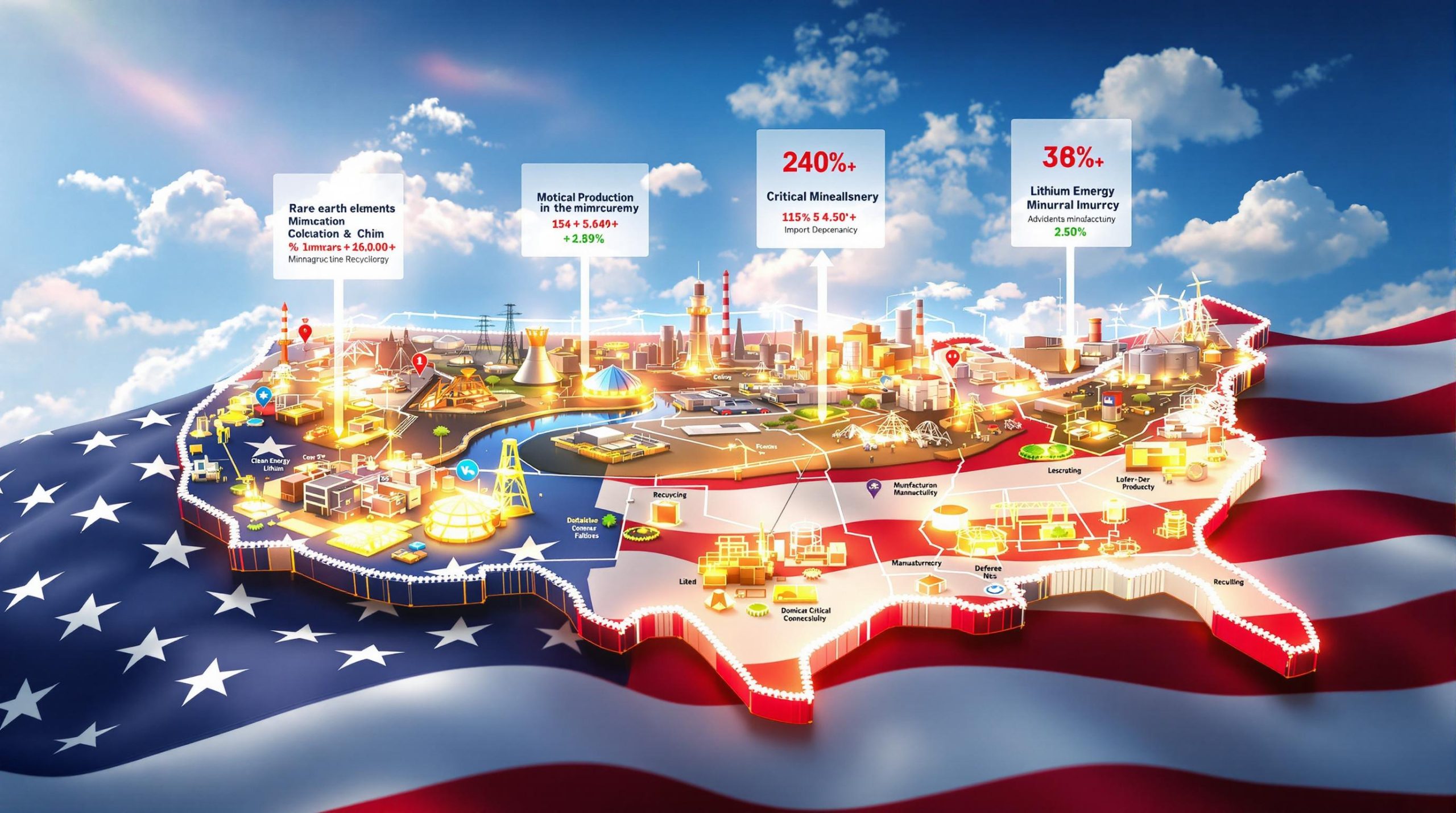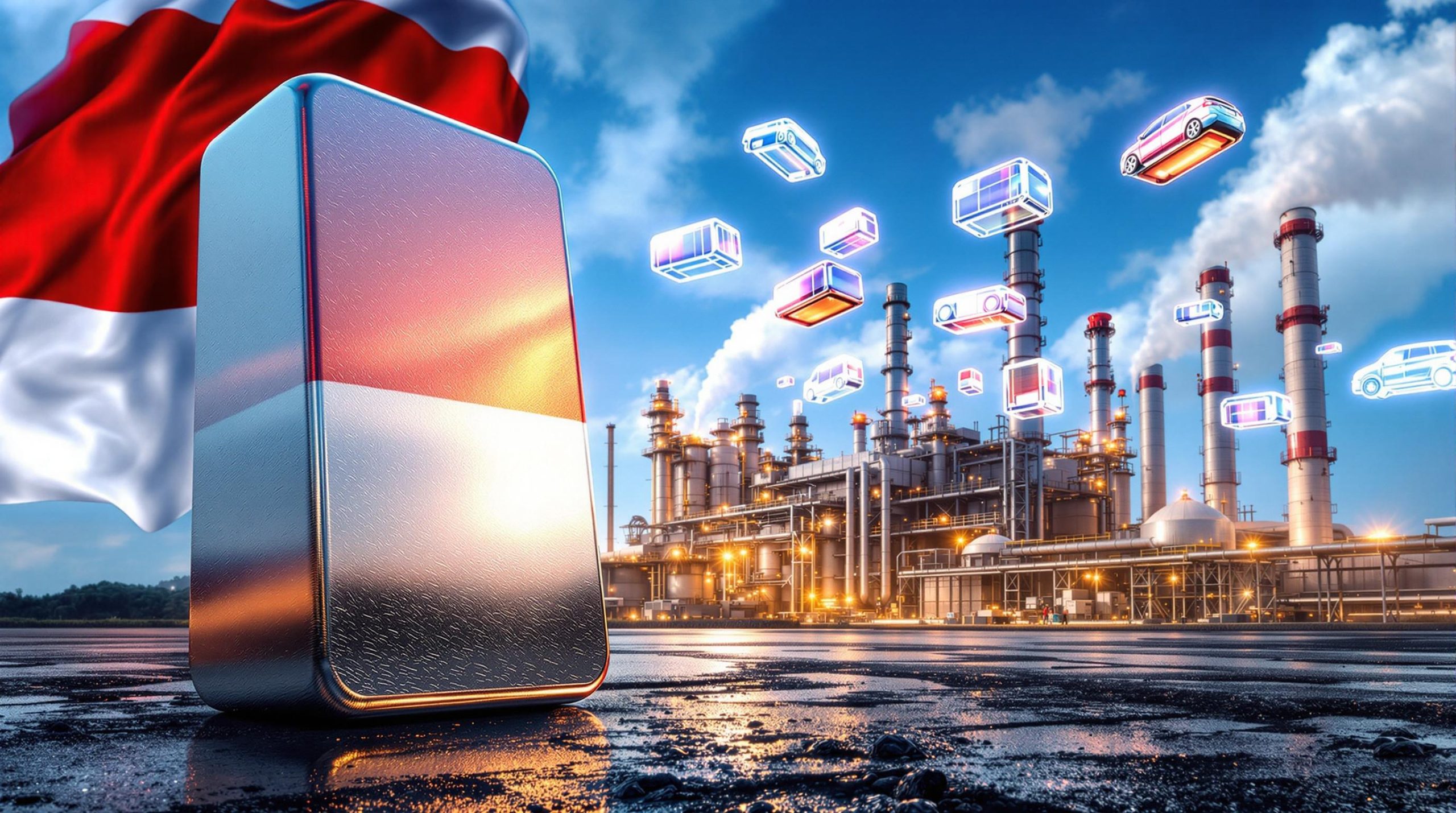How is Renascor Meeting Global Graphite Demand Outside China?
The race to establish secure supply chains for critical battery minerals has found a new contender in South Australia's Siviour deposit. Renascor Resources has successfully produced high-grade graphite concentrate that positions it as a potentially significant player in the global graphite market at a time when Western nations are actively seeking alternatives to Chinese supply dominance.
The Strategic Importance of Siviour's Graphite Production
Renascor Resources recently achieved a significant milestone in its journey toward becoming a major graphite producer outside China. The company successfully processed a 730-tonne bulk ore sample through conventional flotation at its Siviour deposit in South Australia, resulting in graphite concentrate production that exceeded initial expectations.
The processing campaign delivered impressive results, achieving an average grade of 96.8% carbon in the concentrate with an exceptional recovery rate of 96.5%. These figures surpass the initial processing parameters, demonstrating the technical viability of the deposit and processing methodology.
This production milestone follows a scheduled winter shutdown and processing campaign restart, keeping the project on track with its development timeline. The successful concentrate production represents not just a technical achievement but a strategic positioning in the increasingly important non-Chinese graphite supply chain.
"The competitiveness of our Battery Anode Material project is underpinned by our Siviour deposit," noted David Christensen, Renascor's Managing Director. "These results validate our processing approach and reinforce the quality of our resource."
The achievement is particularly notable considering that high-grade carbon content above 96% is generally considered premium quality for battery applications, where purity directly impacts battery performance and longevity.
What Makes Renascor's Graphite Project Globally Significant?
The global graphite market is currently dominated by Chinese producers, who control approximately 80% of natural graphite mining and nearly 100% of the processing required for battery-grade materials. This concentration presents significant supply chain risks for Western economies transitioning to electric vehicles and renewable energy storage.
Renascor's Siviour project has emerged as a potentially vital piece of the ex-China supply puzzle, particularly as the United States has implemented US tariff landscape on Chinese anode materials. These trade measures have created an urgent need for alternative suppliers, a gap that Renascor is positioning itself to fill.
The company is targeting growing demand for non-Chinese battery anode materials with its 100% Australian-made graphite product designed for international markets. What distinguishes Renascor's strategy is its ambition to become the first ex-China lithium-ion battery anode producer through vertical integration—controlling both the mining and advanced processing of graphite.
This strategy addresses mounting concerns about overreliance on Chinese battery materials, particularly as automakers in Europe and North America face increasing pressure to secure ethical and geopolitically secure supply chains under various clean energy incentive programs.
How Will the Concentrate Be Used in Renascor's Vertical Integration Strategy?
The newly produced graphite concentrate isn't destined for immediate sale but will serve as feedstock for Renascor's government-funded Purified Spherical Graphite (PSG) demonstration plant in South Australia. This represents a crucial step in the company's vertical integration strategy.
The concentrate will be delivered on schedule to the South Australian facility, where it will be transformed into battery-ready anode material through Renascor's proprietary purification process. What makes this process particularly noteworthy is its hydrofluoric acid-free approach to purification.
Traditional graphite purification typically relies on hydrofluoric acid (HF), a highly corrosive and hazardous substance that presents significant environmental and safety challenges. Renascor's eco-friendly alternative eliminates these risks while still achieving the ultra-high purity levels required for battery applications.
The demonstration plant will validate the commercial viability of this innovative purification process at a meaningful scale. Success here would position Renascor as not just a supplier of raw graphite concentrate but as a producer of battery-ready anode materials—a capability currently dominated by Chinese companies.
What Economic Advantages Does Siviour Offer?
According to Renascor management, the Siviour deposit offers distinctive economic advantages that position it as one of the world's most cost-competitive graphite concentrate sources. This cost advantage stems primarily from the favorable geological characteristics of the deposit itself.
Unlike many graphite deposits that require complex mining and processing methods, Siviour benefits from:
- Near-surface mineralization – Reducing mining costs through lower strip ratios
- Consistent flake size distribution – Enabling more predictable processing outcomes
- Amenability to conventional processing – Avoiding costly specialized equipment
- Favorable infrastructure location – Proximity to existing transport and power infrastructure
These natural advantages provide Renascor with a solid foundation for its vertical integration strategy. By controlling costs at the mining stage, the company can maintain competitiveness throughout its value chain, including the more capital-intensive downstream processing stages.
The company's integrated approach is designed to transform Renascor from a potential mine developer into a comprehensive battery materials company capable of producing finished anode products—a strategy that could capture significantly more value than concentrate production alone.
What Partnerships Support Renascor's Development?
Strategic industry collaborations form a crucial pillar of Renascor's development strategy. Most notably, South Korean industrial giant POSCO holds a stake in the facility, providing both capital support and potential offtake opportunities. POSCO's involvement brings particular significance as South Korea represents one of the world's leading battery manufacturing hubs outside China.
The project has also secured important government funding support for its demonstration plant, reflecting its alignment with Australia green metals leadership strategy. This financial backing provides validation of the project's strategic importance to Australian industrial policy and reduces capital requirements for Renascor shareholders.
These partnerships position Renascor within broader critical minerals energy security initiatives gaining momentum across Western economies. By aligning with both government priorities and industry requirements, the company has created a supportive ecosystem for its development plans.
The battery manufacturing industry has specific quality and consistency requirements that Renascor must meet to secure long-term supply agreements. Its partnerships provide crucial technical feedback loops to ensure its products align with these exacting specifications.
What Market Impact Has the Announcement Had?
The market's response to Renascor's production milestone was measured but positive, with the company's shares increasing approximately 3% following the announcement. This reaction places the company's market capitalization at approximately $167.8 million.
The relatively modest price movement suggests investors had already partially priced in expectations of successful concentrate production. However, the confirmation of both schedule adherence and better-than-expected quality metrics provides important derisking of the project's technical aspects.
The timing of this milestone coincides with growing awareness of global supply chain realignments in critical minerals, particularly as Western economies implement policies to reduce dependence on Chinese battery materials. This strategic timing potentially positions Renascor to benefit from increasing investment flows into the critical minerals sector.
Within the broader graphite sector, Renascor remains in a development-stage category, with its valuation reflecting both the progress made and the remaining steps required to achieve commercial production. The company trades at a significant discount to Syrah Resources, which operates the Balama mine in Mozambique—currently the largest graphite operation outside China.
What's Next for Renascor's Graphite Project?
With the successful concentrate production milestone achieved, Renascor's immediate focus shifts to its PSG demonstration facility in the coming quarter. This next phase represents a critical technical validation of the company's downstream processing capabilities.
The demonstration plant will process the newly produced concentrate to create battery-grade spherical graphite, the refined product used directly in lithium-ion battery anodes. Successful operation would establish a clear pathway to commercial production of battery anode materials.
Key upcoming milestones include:
- Demonstration plant commissioning – Validating equipment and systems
- Initial PSG production – Confirming quality specifications meet battery requirements
- Optimization of purification parameters – Fine-tuning the eco-friendly process
- Product qualification with potential customers – Securing technical approval from battery makers
- Definitive feasibility study completion – Finalizing commercial-scale designs and economics
The successful execution of this roadmap would position Renascor to scale up to larger commercial operations and secure a strategic position in the battery supply chain. The company's ability to demonstrate consistent quality and commercial viability in this next phase will be closely watched by potential offtake partners and investors alike.
How Does Renascor Fit into the Global Battery Materials Landscape?
Renascor's development comes at a pivotal moment in the reconfiguration of global battery supply chains. Chinese companies currently dominate every stage of graphite processing for batteries, controlling approximately 100% of natural graphite anode production. This concentration presents significant supply security risks as electric vehicle adoption accelerates globally.
The company is positioning itself as an alternative to Chinese dominance in battery anode materials, responding to geopolitical shifts that have heightened supply chain security concerns. Western governments have implemented various policies to support domestic or allied sources of critical minerals, creating a favorable environment for projects like Siviour.
"We offer a secure and competitive source of high-quality graphite products to fill the growing ex-China demand for battery anode materials," explained David Christensen, highlighting the strategic positioning of the project.
Battery manufacturers are increasingly seeking supply diversification to mitigate geopolitical risks and meet regulatory requirements for domestically sourced materials. As one of the most advanced graphite projects outside China with integrated anode material production capabilities, Renascor could become a significant beneficiary of these trends.
The company's hydrofluoric acid-free purification process also aligns with growing ESG requirements from battery and electric vehicle manufacturers, potentially providing an additional competitive advantage in Western markets where environmental standards are increasingly stringent. This approach complements broader mining transformation trends toward more sustainable practices.
FAQ: Renascor's Graphite Production
What grade of graphite concentrate has Renascor produced?
Renascor has achieved an average grade of 96.8% carbon in its graphite concentrate from the Siviour deposit, with recovery rates of 96.5% through conventional flotation processing. These specifications exceed the initial processing parameters and meet the high purity requirements for battery applications.
Why is Renascor's graphite project significant for global markets?
The project represents a secure, non-Chinese source of battery anode materials at a time when the U.S. is implementing anti-dumping duties and import tariffs on Chinese anode materials. This creates an opportunity for alternative suppliers like Renascor to establish themselves in Western supply chains seeking to reduce dependence on Chinese materials.
What technology differentiates Renascor's graphite processing?
Renascor is developing an eco-friendly, hydrofluoric acid-free purification process for Purified Spherical Graphite (PSG), which offers significant environmental and safety advantages over conventional methods that typically use highly corrosive and hazardous hydrofluoric acid. This approach aligns with increasingly stringent ESG requirements from battery manufacturers and EV producers.
Who is partnering with Renascor on this project?
South Korea's POSCO, a major industrial conglomerate and significant player in battery materials, has a stake in Renascor's facility. Additionally, the company has secured Australian government funding support for its PSG demonstration plant, reflecting its alignment with national critical minerals strategy and the development of an European CRM facility network.
What is the next major milestone for Renascor?
The company will focus on its PSG demonstration facility in the coming quarter, using the produced graphite concentrate as feedstock to demonstrate the commercial viability of its purification process. Successful operation would establish a pathway to commercial production of battery anode materials and potentially secure offtake agreements with battery manufacturers.
Comparison: Major Ex-China Graphite Projects
| Company | Project | Location | Production Status | Key Differentiator |
|---|---|---|---|---|
| Renascor Resources | Siviour | South Australia | Concentrate production | Hydrofluoric acid-free PSG process |
| Syrah Resources | Balama | Mozambique | Operating (recently resumed after force majeure) | Largest graphite operation outside China |
| Talga Resources | Vittangi | Sweden | Development | Integrated anode production |
| Nouveau Monde | Matawinie | Canada | Construction | Zero-carbon operation |
| Northern Graphite | Bissett Creek | Canada | Development | High purity, large flake concentrate |
Disclaimer:
This article contains forward-looking statements regarding Renascor Resources' graphite production capabilities and market positioning. Actual results may differ materially from these projections based on various factors including technical challenges, market conditions, regulatory approvals, and economic variables. Investors should conduct their own due diligence before making investment decisions.
Ready to Capitalise on the Next Major Mineral Discovery?
Discover significant ASX mineral discoveries the moment they happen with Discovery Alert's proprietary Discovery IQ model, which transforms complex data into actionable insights for both traders and long-term investors. Explore why historic discoveries can generate substantial returns by visiting Discovery Alert's dedicated discoveries page and position yourself ahead of the market.
